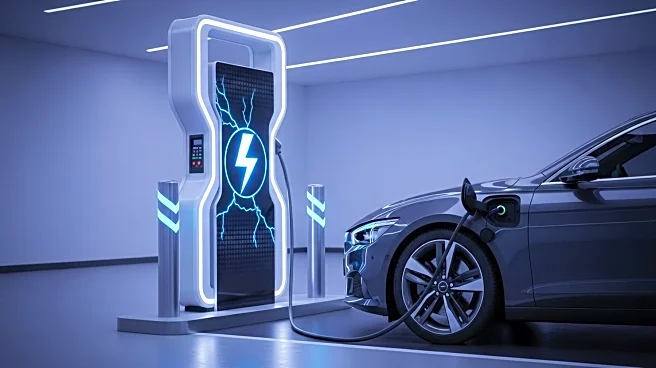What is the story about?
What's Happening?
Chevrolet has unveiled its latest model of the Bolt, priced at $29,990, including the destination charge. The new Bolt features a 65 kWh usable LFP battery capable of charging from 10% to 80% in just 26 minutes, addressing previous concerns about slow charging rates. The vehicle offers an estimated range of 255 miles, although it has not yet been EPA-rated. The Bolt retains its original form factor but includes enhancements such as faster charging and a lower price point, making it a more attractive option for consumers seeking affordable electric vehicles.
Why It's Important?
The introduction of the new Chevy Bolt represents a significant step forward in the electric vehicle market, particularly for consumers looking for cost-effective options. By improving the charging speed and reducing the price, Chevrolet is likely to attract a broader audience, potentially increasing the adoption of electric vehicles. This move could also pressure competitors to enhance their offerings, thereby accelerating innovation and competition within the industry. The new Bolt's affordability and improved functionality may contribute to a shift in consumer preferences towards electric vehicles, supporting broader environmental goals.
What's Next?
As the new Chevy Bolt enters the market, it is expected to generate interest among consumers who prioritize affordability and efficiency in electric vehicles. Chevrolet may continue to refine its electric vehicle lineup, potentially introducing more models with similar enhancements. The automotive industry will likely monitor consumer response to the Bolt's new features, which could influence future design and pricing strategies. Additionally, regulatory bodies may assess the vehicle's performance and environmental impact, potentially influencing policy decisions related to electric vehicle incentives.
Beyond the Headlines
The launch of the new Chevy Bolt could have broader implications for the automotive industry and environmental policy. As electric vehicles become more accessible, there may be increased pressure on infrastructure development, such as charging stations, to accommodate growing demand. This shift could also impact oil and gas industries as consumer reliance on fossil fuels decreases. Furthermore, the Bolt's success may encourage other manufacturers to prioritize sustainability and innovation, potentially leading to a more environmentally conscious automotive market.
















